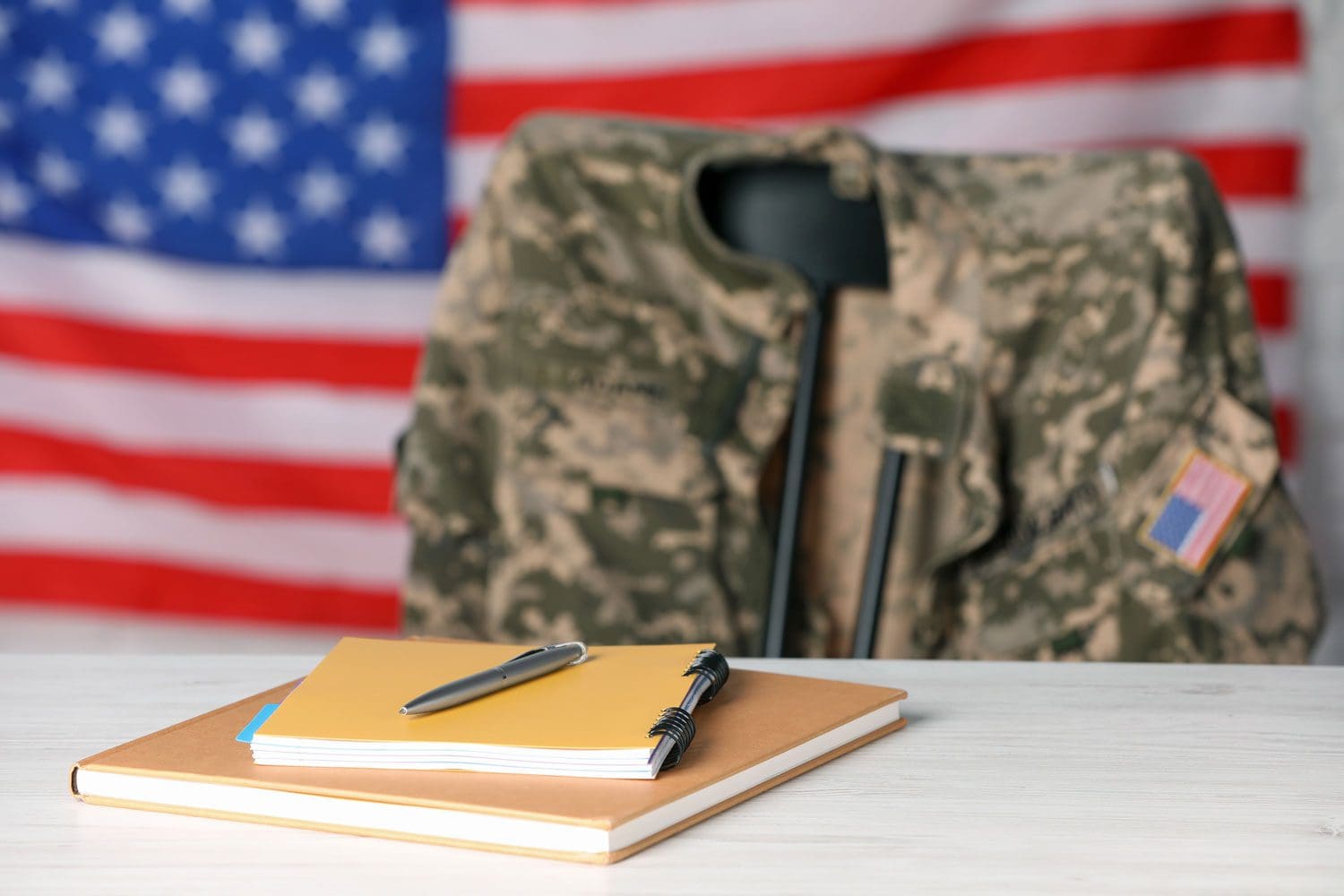Table of Contents
When you ask a service member or Veteran why they volunteered for the United States military, many admit to joining the military for the educational benefits, specifically the G.I. Bill. Established in 1944, the VA GI Bill provides qualifying Servicemembers, Veterans, and their family members with financial aid to partially or fully cover the cost of education or trade training. Here, we’ll discuss the GI Bill’s language, coverage and benefits.
Different Types of GI Bill Programs
As mentioned above, the VA GI Bill is not just one bill. Each program has its own subset of qualifications and services. The most common one is the Montgomery G.I. Bill (AD), also referred to as the “Active Duty Montgomery GI Bill” and the “Reserve and Guard Montgomery GI Bill”. Both have their own series of qualifications. Later, they added the Post-9/11 GI Bill to honor those who served in response to the terrorist attacks.
The Post-9/11 GI Bill (Chapter 33)
The Post-9/11 GI Bill provides comprehensive education benefits to Veterans who served on active duty after September 10, 2001, covering full tuition, housing allowances and additional support, with the option to transfer benefits to eligible dependents in certain circumstances. You can read more about the Post-9/11 GI Bill in this article and the transfer of education benefits in this article.
Montgomery GI Bill – Active Duty
The Montgomery GI Bill – Active Duty offers education benefits to Veterans who have served on active duty, providing financial assistance for tuition, housing, and other educational costs to help them pursue college, vocational training, or other approved programs. You can read more about the Active Duty Montgomery GI Bill in this article.
Montgomery GI Bill – Reserve and Guard
The Montgomery GI Bill – Reserve and Guard provides education benefits to members of the Selected Reserve, including the Army, Navy, Air Force, Marine Corps, and Coast Guard Reserves, as well as the National Guard, helping them pay for higher education, vocational training, and more based on their length of service and training. You can read more about the Reserve and Guard Montgomery GI Bill in this article.
Survivors and Dependents Educational Assistance (DEA)
The Survivors’ and Dependents’ Educational Assistance provides education and training benefits to the surviving spouses and children of Veterans who have died or are permanently disabled due to service-related conditions, offering financial support for tuition, fees, and other educational costs to help them pursue a variety of academic and vocational opportunities. You can read more about the Survivors’ and Dependents’ Educational Assistance in this article.
What Are the Benefits of the GI Bill?
The VA GI Bill offers a variety of educational benefits for service members, but the extent to which the bill will cover greatly depends on the Servicemember’s or Veteran’s service, length of time of the service, and a variety of other factors. Generally, the VA GI Bill provides coverage for the following benefits, regardless of the circumstances:
- Portion of or all college and university tuition or up to $25K for foreign schools.
- Online and part-time schooling
- Licensing and certification courses
- Vocational and trade training
- Flight school
- Entrepreneurship training
- Housing allowance
- $1K for supplies and books
To determine your level of eligibility and benefits, you can check out the link for percentages of benefits.
How to Apply for the GI Bill
The first item you’ll need is the required documentation, which includes:
- Social Security number
- Bank account direct deposit information
- Military history and education
- Basic information about the school or training facility you want to attend
You can apply online at this link. You can also apply for the GI Bill by mail by filling out the correct form. You can call 888–442–4551 to request a copy of the application. You can apply at a regional VA office and have a VA employee help you. Once you apply, you can check your status on Access VA. You should have your answer around 30 days to process your VA Gov Education benefits.
Frequently Asked Questions
Service members called into action as a result of the terrorist attacks of September 11, 2001, some of whom included activation but not necessarily deployment, are the focus of the Post 9/11 GI Bill. The Montgomery Bills cover other areas of service.
Service members called into action as a result of the terrorist attacks of September 11, 2001, some of whom included activation but not necessarily deployment, are the focus of the Post 9/11 GI Bill. The Montgomery Bills cover other areas of service.
The Post-9/11 GI Bill allows you to transfer your GI Bill benefits to a dependent or spouse if you are active duty or in the Selected Reserve, provided you meet all of the other requirements.
You will receive a statement every month showing how much of your benefits you have used and how much you have left for education or training. You can also check this link online.
Yes, benefits include online education.
You must use your benefits within 15 years of discharge from the military. If you did not use them, you can receive a $1200 refund.
While awaiting the approval of benefits, schools cannot penalize or prohibit a G.I. Bill student from attending or participating in courses. However, consult your local VA resource officer if you receive a denial or a delay in benefits.
All versions of the G.I. Bill provide tax-free benefits for education.
Yes, depending on your GI Bill eligibility, some VA benefits from the G.I. Bill are retroactive.
Early dismissal from the military may result in less than 100% of the benefits paid for education.
There is no restriction to benefits if you also receive a scholarship, but the scholarship might choose to reduce the amount of tuition and payment if you are receiving benefits from the G.I. Bill.




